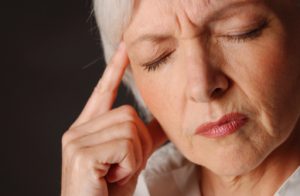 June is national migraine and headache awareness month. Chronic headaches are a serious problem affecting people’s lives, and this month is dedicated to helping provide more information to those in need. At Bel Marra, we take health very seriously and feel it is our duty to spread awareness. To do our part, we’ve rounded up a bunch of articles we think would help those with severe headaches. You will find information on migraine frequency, migraine postdrome, and migraine hangover. We have also included articles touching on reasons you may be having a headache in the back of your head or a headache behind ears.
June is national migraine and headache awareness month. Chronic headaches are a serious problem affecting people’s lives, and this month is dedicated to helping provide more information to those in need. At Bel Marra, we take health very seriously and feel it is our duty to spread awareness. To do our part, we’ve rounded up a bunch of articles we think would help those with severe headaches. You will find information on migraine frequency, migraine postdrome, and migraine hangover. We have also included articles touching on reasons you may be having a headache in the back of your head or a headache behind ears.
Your weight affects migraine frequency: Study
Getting a splitting headache can ruin anyone’s day, and there is no other group of people knows this more than those afflicted by migraine headaches. There are several triggers and risk factors for a migraine, and your current weight plays a key role, according to a new study.
Advertisement
Migraine headaches affect nearly 12 percent of U.S. adults and can cause severe throbbing pain or a pulsing sensation, usually on one side of the head. It can also be accompanied by nausea and vomiting, and an extreme sensitivity to light and sound. Migraine attacks can cause head pain for several hours to multiple days, and it becomes quite debilitating. Some individuals may experience an “Aura” before a migraine headache starts, acting as a sort of warning sign. Auras are described as visual disturbances, like a flash of light or wavy vision. Continue reading…
 How to get rid of a migraine hangover (postdrome) headache
How to get rid of a migraine hangover (postdrome) headache
A migraine hangover, or migraine postdrome, can occur after you experience a migraine and could be almost as debilitating as the pain itself. Most people who suffer migraines will feel the postdrome almost immediately after the pain subsides, and symptoms can last for up to 48 hours. Continue reading to learn what a migraine hangover feels like, the symptoms associated with one, and how to treat or avoid them. Continue reading…
 Migraines linked to tears in neck arteries, may increase risk of stroke
Migraines linked to tears in neck arteries, may increase risk of stroke
New research has discovered a link between migraines and the risk of arterial tears in the neck—a factor that can increase the danger of stroke. Tears to the arteries in the neck are known as arterial dissection, and while a relationship has been found between this condition and migraines, the probability of developing it is still considered low. While painful, migraines are generally benign and do not cause any long-term or lasting damage.
The study examined 2,500 stroke patients between the ages of 18 and 45, 13 percent of which suffered a stroke related to artery tears. This 13 percent was also more likely to have high cholesterol, diabetes, and smoke. Researchers analyzed the pattern of migraines in connection with vessel tears and stroke and found that the tears were more prevalent in patients who suffered migraines without aura. Continue reading…
 Headache behind ears: Causes, symptoms, diagnosis, treatment, and prevention
Headache behind ears: Causes, symptoms, diagnosis, treatment, and prevention
Advertisement
Headaches are a common occurrence and occur to everyone at least once in their lives. There are more than 300 types of headaches currently known, and some occur in various regions of the head.
One of these locations is behind the ears, and there are a number of reasons for it to occur there. Headaches behind the ear may at least provide a clue to the origins of a headache. Continue reading…
 Headache in the back of the head: Understanding the causes
Headache in the back of the head: Understanding the causes
A headache in the back of the head can be a nuisance, disrupting your day and sometimes preventing you from carrying out normal activities, but what causes these pains? Continue reading to learn about headache trigger points, as well as some of the most common causes of headaches in the back of the head and some tips on how to treat and avoid these annoyances.
Headache trigger points are locations within groups of muscles that can cause tension headaches when stressed. The muscle groups affected are the splenius muscles, the sub occipitals, the sternocleidomastoid, and the trapezius, and tension along each can result in a headache. Continue reading…
